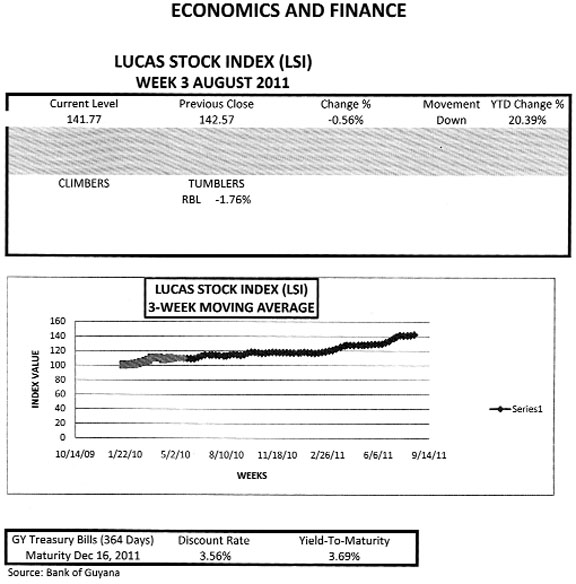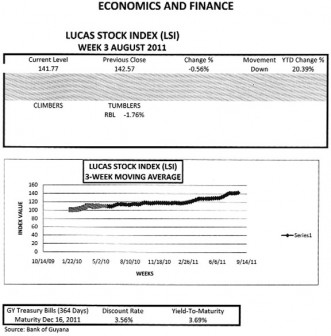Unilateral
Sometime this year, the PPP/C administration will unilaterally pass a Telecommunications Bill that will see a change in the size, structure and management of the information and communications sector. The new law will, in effect, replace the existing legislation on telecommunications in Guyana that came into being in 1990. The changes to the law are extensive and impose substantial responsibility on those persons or entities that participate in the industry. Its focus is not only on service providers but also on users of the system that no one will be spared its consequences. Given the far-reaching nature of the Bill, passing it without multiparty support is equivalent to rejecting the concerns and views of the majority of those who will be subject to its effects.
Unchecked Powers
The stated purpose of the Bill is ostensibly to provide for the establishment of a Telecommunications Agency to help regulate the operation of the telecommunications industry. There might be justification for such a public entity if it can function fairly and objectively, and does not become another political tool of the current administration to suppress freedom of expression and the exercise of human rights. There is little chance of preventing that from happening with the Bill as currently drafted, since the Minister holding this portfolio will have unchecked powers over the implementation of the legislation if and when it passes.
Given the track record of this administration, no one should be holding their breath for a judicious application of this Bill if it becomes law and the PPP/C administration remains in power. One glaring example is the need for the Minister to approve the choice of non-governmental organization to manage domain names even though the chosen organization might have already been identified as neutral and was so qualified.
Bad Name
LUCAS STOCK INDEX
The stocks of Republic Bank Limited (RBL) were the only ones traded in the third week of August 2011. With the RBL stocks trading lower than the previous week, the LSI declined by half of one percent. As a result, the spread between the index and the risk-free Treasuries due to mature in December 2011 fell below 21 percentage points.
Aside from its social and political content, it is the sort of legislation that gives Guyana a bad name in the enforcement of legal contracts. This has been a complaint of non-partisan groups regarding the uncertainty of doing business in Guyana. Oblivious to the criticism, this new law would allow the administration to reset, not quite to the default position, the telecommunications switch. The resetting of the telecommunications switch means big changes for GT&T and an opportunity for companies that have been enabled to preposition themselves to benefit from the law. GT&T stands to lose its exclusive licence to provide domestic fixed services and international voice and data services in and out of Guyana. This matter weighs heavily on the mind of Atlantic Tele-Network (ATN), the parent company of GT&T, which has been trying to get the current administration to allow it to exercise its right of renewal of its exclusive licence for another 20 years. ATN sees the end of its exclusive licence as a fait accompli and has resigned itself to the likelihood that it would not prevail in any legal proceedings to enforce its rights. This means the end of the road for GT&T as Guyanese have come to know it.
Worst Fears
If GT&T’s worst fears come true, it is logical to inquire if ATN would hold on to GT&T. The answer is not cut and dried given how much is at stake for ATN at this point in its corporate life. GT&T is no longer the flagship enterprise of ATN, but it remains an important contributor to the bottom line of ATN. According to its second quarter report to the Securities and Exchange Commis-sion (SEC) filed earlier this month, ATN disclosed that its GT&T operations contributed the highest share of operating income for the reporting period. This reflects lower operating costs for GT&T against the other businesses of ATN. At the same time, ATN is pumping lots of money into its US Wireless operations which is bringing in close to 80 percent of ATN’s revenues and is likely to remain the lead sibling in the family of ATN businesses.
Cost Disadvantage
Moreover, it is not clear that it is the fixed wireline business that competitors in the Guyana market are after. Competitors want to free themselves from the clutches of GT&T’s telecommunications networks that limit their competitiveness vis-à-vis GT&T. By relying on GT&T’s service, competitors start their business at a cost disadvantage. This matter is addressed under the issue of interconnection and access in the proposed law. While this section of the proposed law contains several features, the call for operators to suppress their advantage in favour of others, including competitors, stands out. This element of the Bill requires an operator like GT&T, for example, to fully give up its cost advantage so that others, who do not bear the risk and responsibility of the investment, can enjoy the benefits of the investment without the burden of care.
Reciprocity
The language of the Bill on the matter of interconnection and access implies reciprocity, and that participants in the market were likely to make capital investments that can be used by GT&T. While desirable, there is no guarantee that competition in the Guyana market will alter immediately the investment landscape for interconnection and access. As a consequence, GT&T might end up waiting a long time before it can enjoy reciprocity. Without an early chance for reciprocity, the interconnection and access clause would be tantamount to pulling back a right previously available to GT&T. In other words, something that should be considered as an asset by GT&T could hardly be so regarded in the future under the proposed Bill. Even in the spirit of competition, that does not sound right. Therefore, it would come as no surprise to see GT&T either limit or slow down future investments in the Guyana market. According to its 2011 second quarter report to the SEC, capital investment in Guyana is down 40 percent while it is up by 21 percent in the US market.
Enforcement
While GT&T has the capacity to confront its legal challenges, enforcement of the provisions of the proposed law might create a legal headache for a separate group of operators: Internet Café owners who provide public telephone or public telecommunications services for money. According to the Bill, public telephone service means “the commercial provision to the public of interactive voice communication in real time from and to network termination points, irrespective of the switching or transmission technology used”. At the same time, public telecommunications service means “a telecommunications service which is available to the public or to any part thereof, or to such classes of users as to be effectively available to the public, whereby one user can communicate with any other user, regardless of the technology used to provide such service, and shall include any public telephone service, any call termination service, and any telecommunication between a person and equipment or between equipment”.
From the foregoing, it should be clear to all that whether the call is from computer to computer as with Skype or Google Voice or telephone to computer and vice versa, it comes with financial and legal implications for the provider under the proposed Bill. The technology used for the transmission does not matter and implies that Internet Cafes must obtain a license to continue providing Internet services if they do not already have one.
Anonymous
Unfortunately for this group of service providers, the proposed law ignores their existence. Many Guyanese depend on the public telephone and telecommunication services provided by Internet Cafes to stay in touch with loved ones. Yet these entities are not being accounted for in a positive way in the Bill. They are treated as anonymous economic entities despite the positive social and economic impact they have on the lives of individuals and on the Guyana economy. As small as they might be, they too should be given a chance to regularize their operations in the same way the preferred larger enterprises are being permitted to do. These service providers seem to be regarded as nothing more than a nuisance and no effort is being made to accommodate them in the transition. The headache for this type of small business will increase with the requirement that they will have to contribute to the universal access and universal service fund, if they were not explicitly exempted from doing so.
Noting its impact on small businesses and the benefits accruing to other players in the telecommunications market, passing this Bill without multiparty support will affirm the insensitivity of the PPP/C administration to small business owners and its general disregard for the views of Guyanese.






